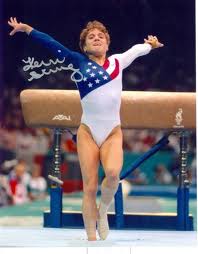
by Jason Joyner | Apr 4, 2012 | Blog, humor, what are you laughing at, writing craft, Writing Wednesday
 |
| LOLZ! So funny! |
Last week I was part of a blog tour for the book Night of the Living Dead Christian by Matt Mikalatos. One aspect of the book that was always brought out was its humor in the way it dealt with serious issues of faith. Matt’s sense of humor didn’t resonate with everyone, but everyone recognized it was a valid device to get points across.
So how do we make others laugh in our writing?
I am writing a suspense. I hope it is suspenseful. I hope it keeps people turning the pages. But I also want there to be some laughs in the midst of it. Not only do I enjoy that type of writing, I think it helps control the mood. If a writer can disarm a reader with a laugh at one point and hit them with a gut punch of drama later on, the reader has more of an emotional ride from it.
I’m the type that really enjoys laughing. My favorite writing combines suspense, good characterization, and a sense of humor. Some of my favorite authors are James Scott Bell, Tim Downs, and Rene Gutteridge. They are all known for a clever or witty voice. Even in a serious book, they have moments where the reader is disarmed by a funny comment or piece of dialogue. Heck,
I read the romance Save the Date by Jenny B. Jones because of her humerous writing.
I try to do that in my own writing. I like to find the little surprise or twist that catches people off guard. I don’t know if it is working, but if it makes me smile after reading it over again, my feeling is it has potential.
What do you think? Do you try for humor in your writing? If so, how do you go about putting the funny in there?
—

by Jason Joyner | Apr 4, 2012 | Blog, humor, what are you laughing at, writing craft, Writing Wednesday
 |
| LOLZ! So funny! |
Last week I was part of a blog tour for the book Night of the Living Dead Christian by Matt Mikalatos. One aspect of the book that was always brought out was its humor in the way it dealt with serious issues of faith. Matt’s sense of humor didn’t resonate with everyone, but everyone recognized it was a valid device to get points across.
So how do we make others laugh in our writing?
I am writing a suspense. I hope it is suspenseful. I hope it keeps people turning the pages. But I also want there to be some laughs in the midst of it. Not only do I enjoy that type of writing, I think it helps control the mood. If a writer can disarm a reader with a laugh at one point and hit them with a gut punch of drama later on, the reader has more of an emotional ride from it.
I’m the type that really enjoys laughing. My favorite writing combines suspense, good characterization, and a sense of humor. Some of my favorite authors are James Scott Bell, Tim Downs, and Rene Gutteridge. They are all known for a clever or witty voice. Even in a serious book, they have moments where the reader is disarmed by a funny comment or piece of dialogue. Heck,
I read the romance Save the Date by Jenny B. Jones because of her humerous writing.
I try to do that in my own writing. I like to find the little surprise or twist that catches people off guard. I don’t know if it is working, but if it makes me smile after reading it over again, my feeling is it has potential.
What do you think? Do you try for humor in your writing? If so, how do you go about putting the funny in there?
—

by Jason Joyner | Mar 21, 2012 | BioWare, Blog, Mass Effect 3, stick that ending, writing craft, Writing Wednesday
So, remember my last writing post from a week ago?
I talked about looking for good stories in any medium and learning from them. My specific example was the Mass Effect video game series from BioWare. For entertainment and thought-provoking story, I have never seen a video game like Mass Effect 3.
And then I finished the game.
[SPOILER ALERT]
*crickets chirped*
Almost literally, it seemed like that happened. I didn’t get it. I didn’t see that coming. The ending of the game, and of a five year, three game-spanning story, didn’t make sense. I sat in my living room, thinking “Huh?”
There is a lot of talk on game websites about this, and don’t even try to find a impartial opinion on the BioWare forums. I’ve seen long analyses trying to prove some theory or another from passionate gamers. Some say there is a point to the ending and it is so genius only the truly enlightened get it (kidding).
Well, this isn’t a game post. It is a writing post. What is the writing lesson to take from this?
 |
| Remeber this? If not, I’m getting old. |
You’ve got to stick the ending.
Your writing can be brilliant. The prose can sparkle and move a reader to tears. The characters seem like living people you want to go get a beer with afterwards. The plot can shock and amaze with the suspense and tension. It can be the new Great American Novel…
As long as you nail the finish.
My disclaimer: I haven’t finished my novel yet. I have not proven that I can stick it. But I know not sticking it when I see it.
- a deus ex machina that comes from nowhere
- new ideas that were never foreshadowed, or only fainly done
- a new character at the last minute who is very important
- contradicting established character traits or identities
- convenient glowing God-child telling the protagonist to do something wacky (this last one is a little more specific to ME3)
Writing a novel is hard. It takes skill and dedication to see an imagined world through to the end. Let it end well. Make sure you don’t lose focus.
The Matrix was remarkable when it came out back in 1999. Then came The Matrix Reloaded and everybody did a double-take. It sullied the first movie. Same with the Pirates Of The Caribbean movies – the first one is widely loved, the second one was a little iffy, and the third was “what was the writer and director smoking?”
The Mass Effect story from 1 through 3 should take an average gamer 120 hours to finish (I know, sad). For 119.75 hours it was awesome. The last 15 minutes was like a plane crashing on the tarmac after a long, successful journey.
My take-home lesson: look very carefully at how I’m ending. If I’m taking the reader for a ride, I want them to get to their destination. I’m not saying the ending has to be happy or can’t be tragic, but it can’t feel like the tail of the plane ripped off, sucking the poor reader out into the atmosphere.
What about you? Have you read a book or seen a movie that was great all the way until the ending? Share your examples so we can all learn from them!
—

by Jason Joyner | Mar 21, 2012 | BioWare, Blog, Mass Effect 3, stick that ending, writing craft, Writing Wednesday
So, remember my last writing post from a week ago?
I talked about looking for good stories in any medium and learning from them. My specific example was the Mass Effect video game series from BioWare. For entertainment and thought-provoking story, I have never seen a video game like Mass Effect 3.
And then I finished the game.
[SPOILER ALERT]
*crickets chirped*
Almost literally, it seemed like that happened. I didn’t get it. I didn’t see that coming. The ending of the game, and of a five year, three game-spanning story, didn’t make sense. I sat in my living room, thinking “Huh?”
There is a lot of talk on game websites about this, and don’t even try to find a impartial opinion on the BioWare forums. I’ve seen long analyses trying to prove some theory or another from passionate gamers. Some say there is a point to the ending and it is so genius only the truly enlightened get it (kidding).
Well, this isn’t a game post. It is a writing post. What is the writing lesson to take from this?
 |
| Remeber this? If not, I’m getting old. |
You’ve got to stick the ending.
Your writing can be brilliant. The prose can sparkle and move a reader to tears. The characters seem like living people you want to go get a beer with afterwards. The plot can shock and amaze with the suspense and tension. It can be the new Great American Novel…
As long as you nail the finish.
My disclaimer: I haven’t finished my novel yet. I have not proven that I can stick it. But I know not sticking it when I see it.
- a deus ex machina that comes from nowhere
- new ideas that were never foreshadowed, or only fainly done
- a new character at the last minute who is very important
- contradicting established character traits or identities
- convenient glowing God-child telling the protagonist to do something wacky (this last one is a little more specific to ME3)
Writing a novel is hard. It takes skill and dedication to see an imagined world through to the end. Let it end well. Make sure you don’t lose focus.
The Matrix was remarkable when it came out back in 1999. Then came The Matrix Reloaded and everybody did a double-take. It sullied the first movie. Same with the Pirates Of The Caribbean movies – the first one is widely loved, the second one was a little iffy, and the third was “what was the writer and director smoking?”
The Mass Effect story from 1 through 3 should take an average gamer 120 hours to finish (I know, sad). For 119.75 hours it was awesome. The last 15 minutes was like a plane crashing on the tarmac after a long, successful journey.
My take-home lesson: look very carefully at how I’m ending. If I’m taking the reader for a ride, I want them to get to their destination. I’m not saying the ending has to be happy or can’t be tragic, but it can’t feel like the tail of the plane ripped off, sucking the poor reader out into the atmosphere.
What about you? Have you read a book or seen a movie that was great all the way until the ending? Share your examples so we can all learn from them!
—

by Jason Joyner | Mar 1, 2012 | Blog, revision can be fun, towel therapy, writing craft, Writing Wednesday
 |
| H/T to Paperback Writer |
There comes a time in any writer’s life when they confront the dreaded beast.
Revision.
I’ve been plugging away at my novel for so long, making slow and (sometimes) steady progress, that I haven’t really confronted this issue yet.
That time came with my entry into the American Christian Fiction Writers Genesis contest.
I had written my opening chapters years ago. I had edited them many times when trying to get unstuck, but I had never really revised them. I knew with entering the contest that I had some fatal flaws. The generic weather opening? Check. The first character has nothing to do with the main story? Check.
Since I’ve heard how horrible it is to revise, I didn’t look forward to it, but a handy thing called a deadline forced my hand.
I sat down, hands at the keys.
It flowed.
It wasn’t bad at all! In fact, I rather enjoyed it. It took me a few days to do the first two chapters, but because I had a framework to build off of, I could adjust weak links, build up strong points, and overall tighten things up and make my characters jump out more (I hope).
I guess some of it is I’ve learned so much in the last several years that I can see what didn’t work with my initial thrust, but I could identify the kernel that did click in the writing.
I don’t know if this will be true through the whole novel. I still need to finish it, so I went back to my new work. I really wanted to keep revising, because I felt a sense of accomplishment and improvement. I know that I need to get the skeleton laid down though, and come back to help put the muscles and skin on later.
Hopefully it won’t be long until I get back to revising again. Does that make me strange?
Don’t answer that…
P.S. In an attempt to be a little more helpful, here is a link that talks about revision.
P.P.S. You can actually buy the towel above here. You’re welcome.
—

by Jason Joyner | Mar 1, 2012 | Blog, revision can be fun, towel therapy, writing craft, Writing Wednesday
 |
| H/T to Paperback Writer |
There comes a time in any writer’s life when they confront the dreaded beast.
Revision.
I’ve been plugging away at my novel for so long, making slow and (sometimes) steady progress, that I haven’t really confronted this issue yet.
That time came with my entry into the American Christian Fiction Writers Genesis contest.
I had written my opening chapters years ago. I had edited them many times when trying to get unstuck, but I had never really revised them. I knew with entering the contest that I had some fatal flaws. The generic weather opening? Check. The first character has nothing to do with the main story? Check.
Since I’ve heard how horrible it is to revise, I didn’t look forward to it, but a handy thing called a deadline forced my hand.
I sat down, hands at the keys.
It flowed.
It wasn’t bad at all! In fact, I rather enjoyed it. It took me a few days to do the first two chapters, but because I had a framework to build off of, I could adjust weak links, build up strong points, and overall tighten things up and make my characters jump out more (I hope).
I guess some of it is I’ve learned so much in the last several years that I can see what didn’t work with my initial thrust, but I could identify the kernel that did click in the writing.
I don’t know if this will be true through the whole novel. I still need to finish it, so I went back to my new work. I really wanted to keep revising, because I felt a sense of accomplishment and improvement. I know that I need to get the skeleton laid down though, and come back to help put the muscles and skin on later.
Hopefully it won’t be long until I get back to revising again. Does that make me strange?
Don’t answer that…
P.S. In an attempt to be a little more helpful, here is a link that talks about revision.
P.P.S. You can actually buy the towel above here. You’re welcome.
—




